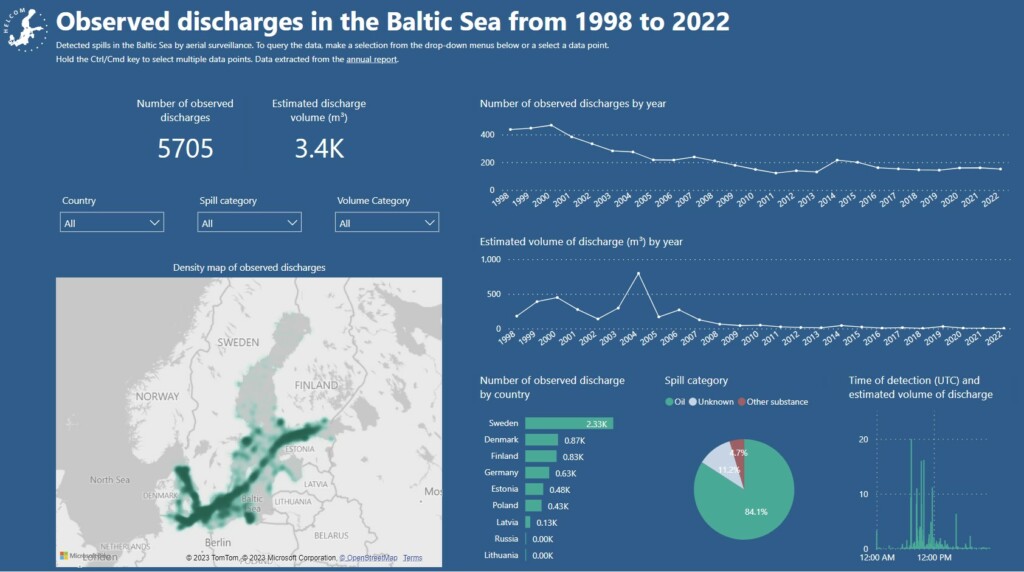Response to Spills
Swift national and transnational response to marine pollution incidents at sea is of utmost importance in the Baltic Sea. The marine environment is vulnerable and highly sensitive to any release of oil or other harmful substances. At the same time the large transport volumes of oil and other potentially harmful products in the region, and the shallow icy waters, imply that we can not eliminate the risk of a major incident.

The Baltic Sea cooperation on pollution preparedness and response under HELCOM has been in place since 1977 when the “Expert Group on Oil Combatting” was established under the HELCOM Interim Commission (1974-1980). Today this group is called the HELCOM Response Working Group and consists of the competent pollution response authorities of all the Baltic Sea countries, usually the national coastguard or navy.
The HELCOM Response Manual, adopted in 1983, includes the agreed operational procedures of Contracting Parties to the Helsinki Convention in the case of a major international oil accident or an accident with hazardous noxious substances (HNS). It also covers administrative procedures and financial matters related to requesting and receiving international assistance.
These procedures are tested in annual joint alarm and operational combating exercises, which test regional cooperation in practice (e.g., HELCOM BALEX DELTA), and joint airborne surveillance activities (HELCOM CEPCO), which were respectively established in the mid- and late 1980s.
Likely due to such intensive training the preparedness of the HECOM states to jointly respond to pollution incidents has been several times demonstrated during oil spills of last decades (see recent oil spill operations).
There are today around 80 dedicated oil response vessels in the region with equipment that can be used for international assistance. Many of these vessels have also substantial towing capacity. Additional, usually smaller, vessels are available for accidents in ports and coastal waters.
The Contracting Parties also cooperate in issues related to response on shore, oiled wildlife response and aerial surveillance which are crucial components of the response strategy and chain.
